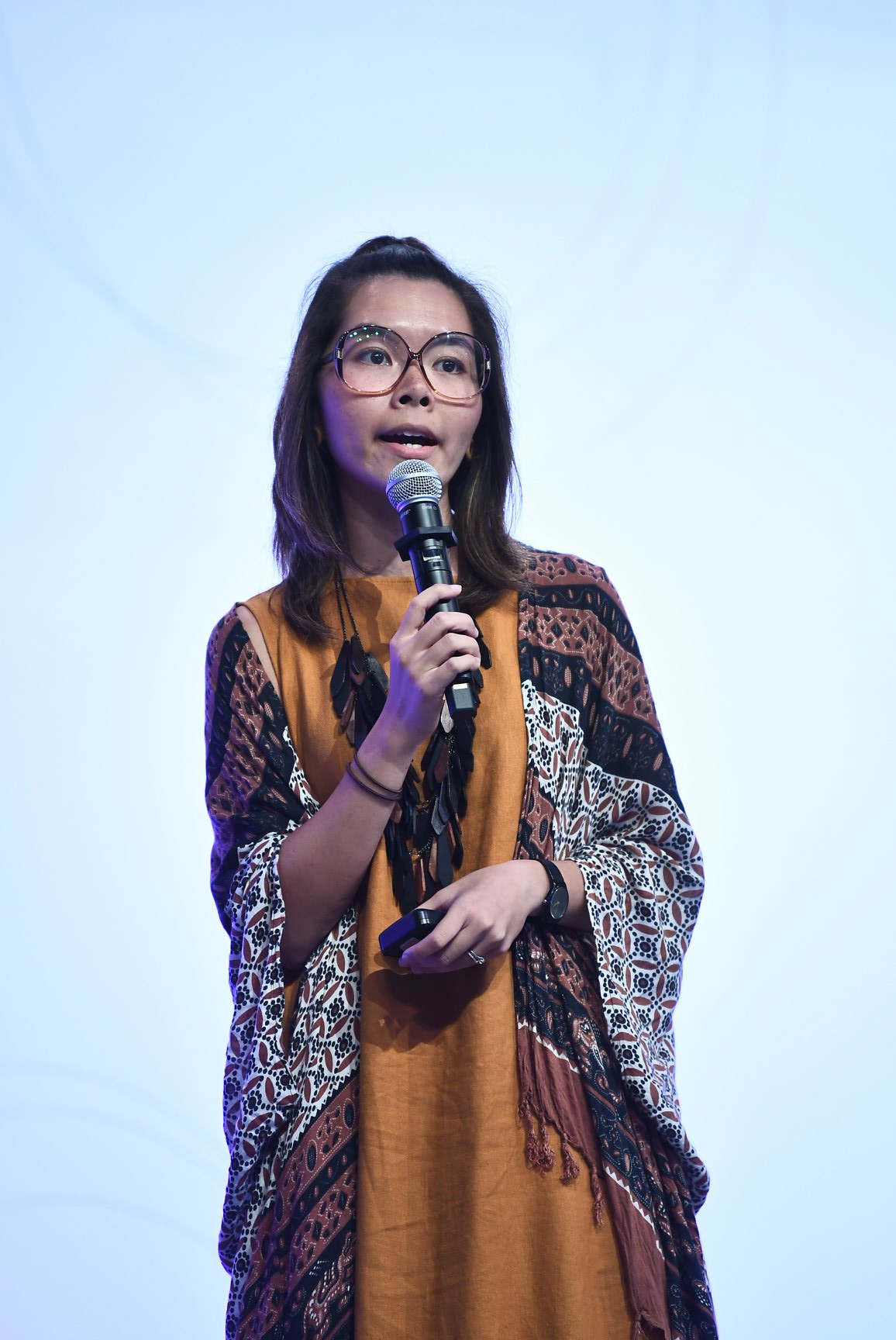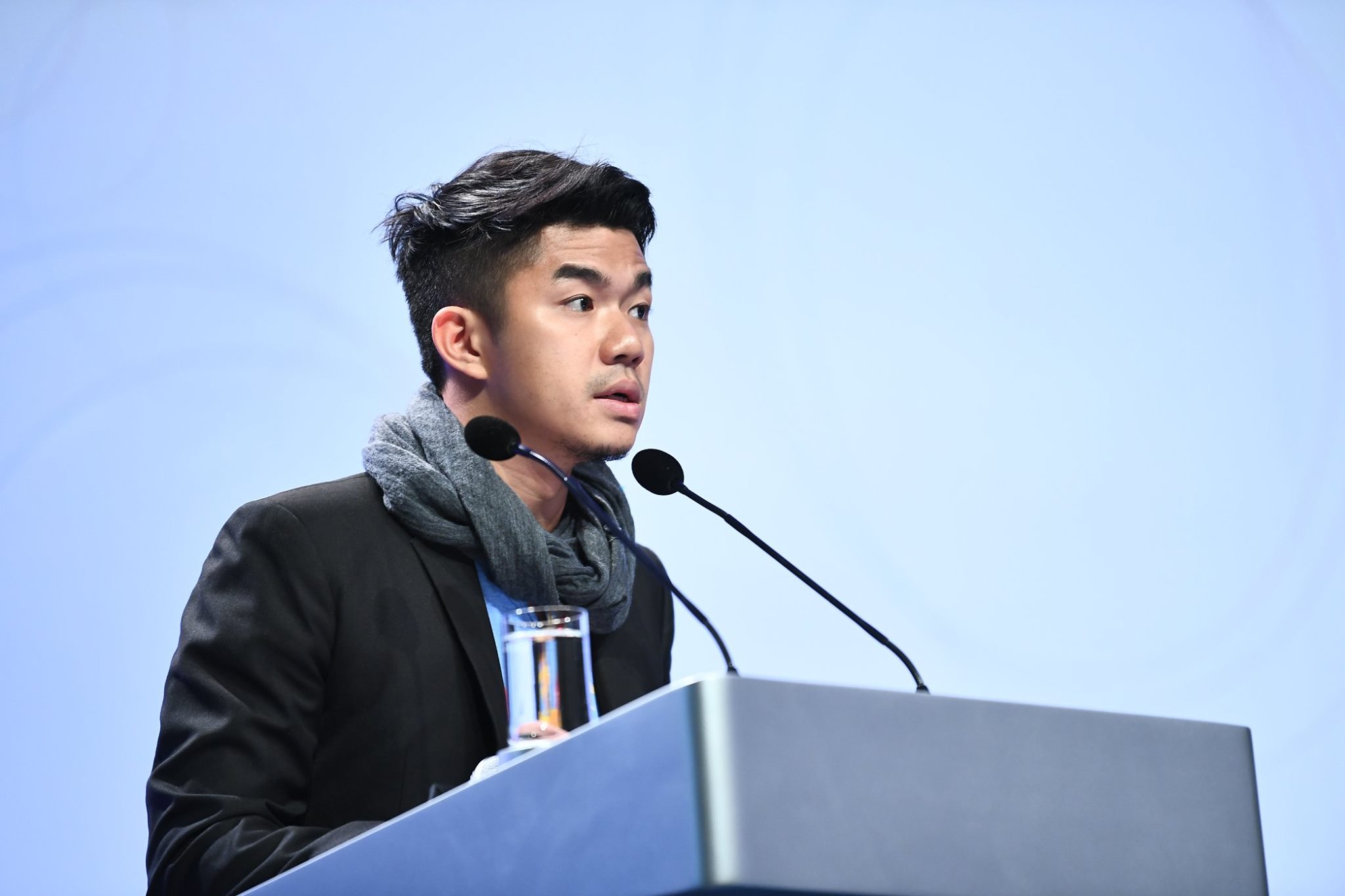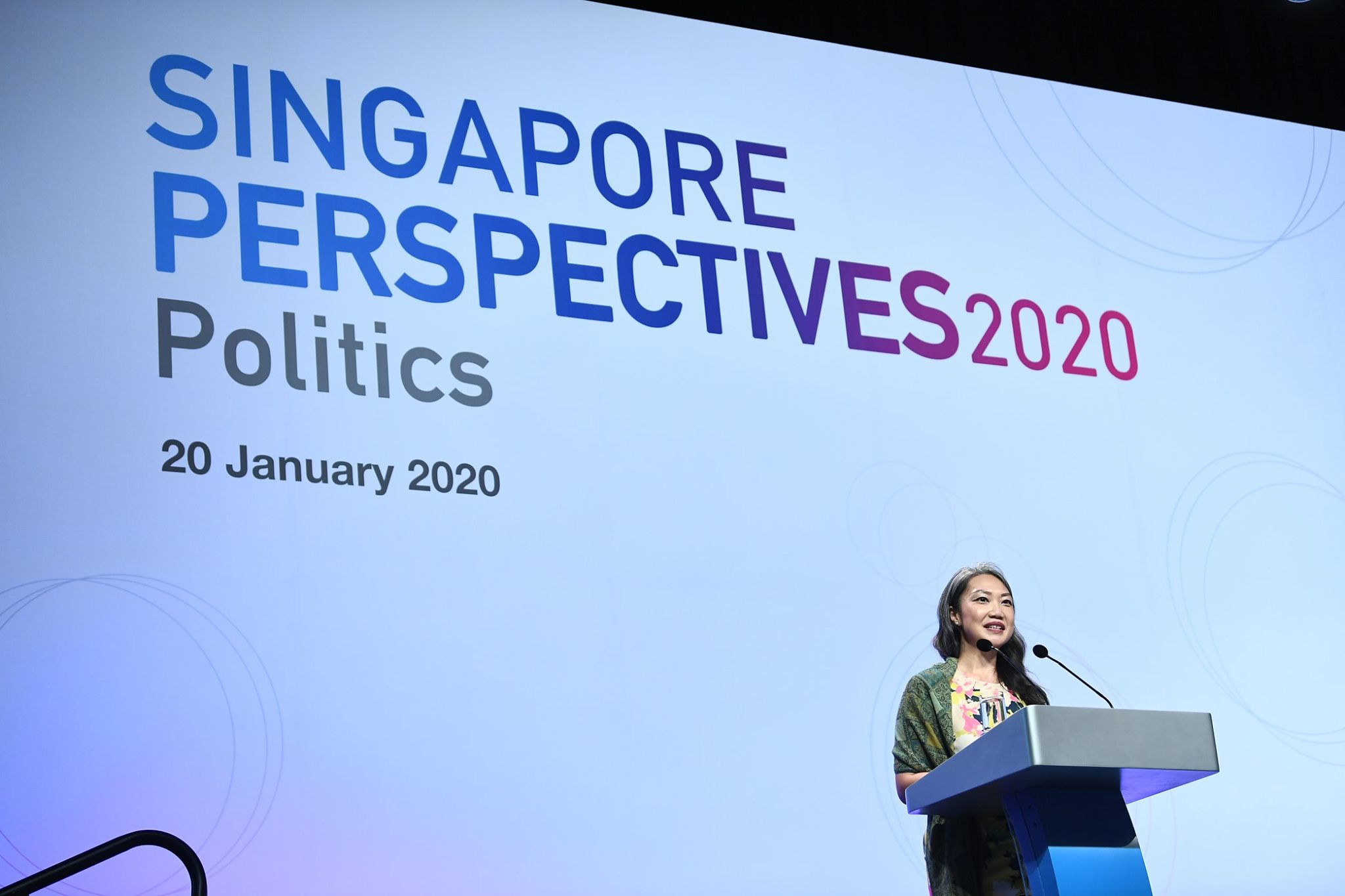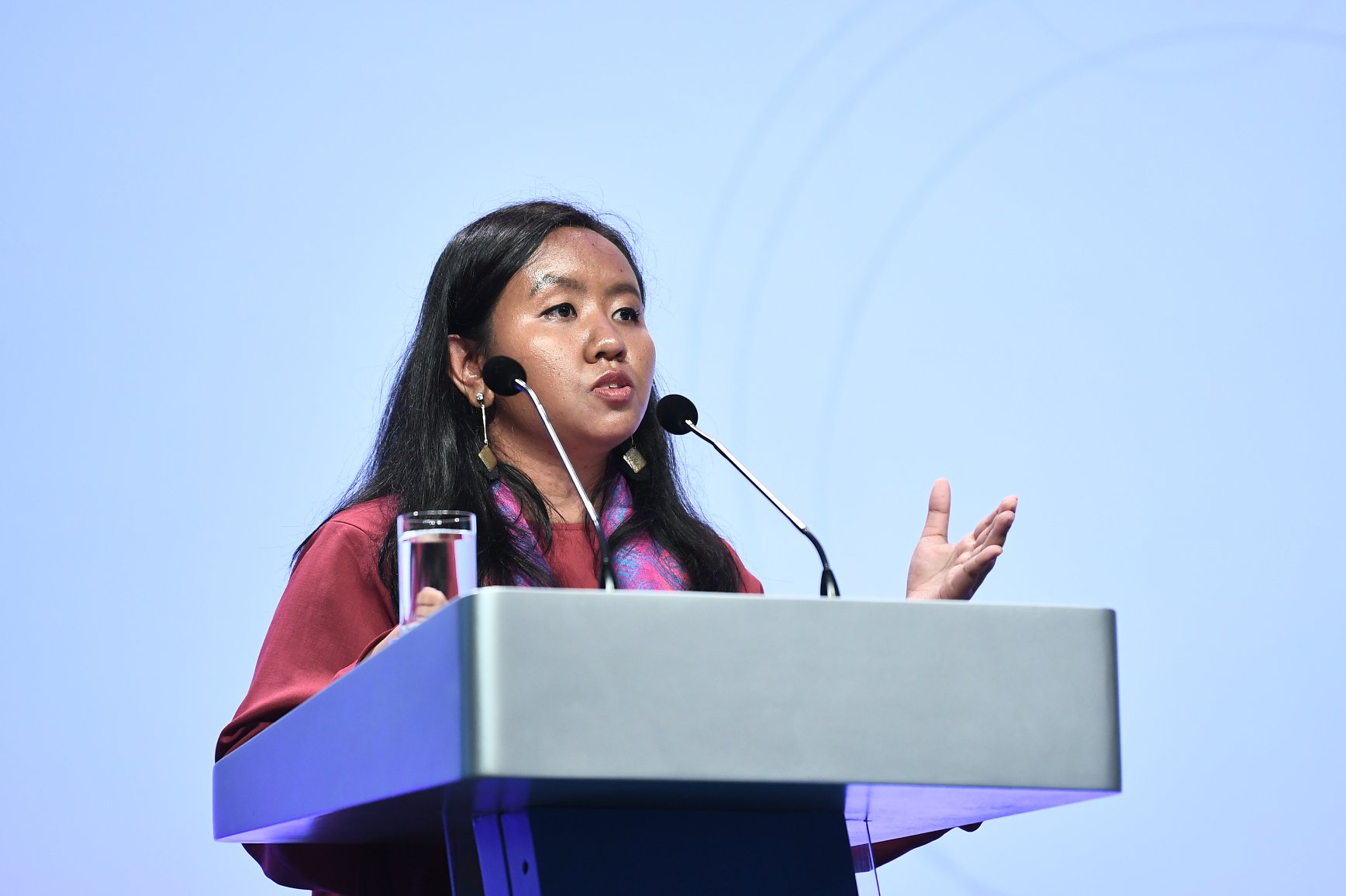Singapore has seen more non-governmental agencies and citizen advocates stepping up to influence social change and local politics in recent years. But where do these new players see themselves and their work in Singapore?
This was the focus of a panel during the Institute of Policy Studies’ (IPS) annual Singapore Perspectives 2020 conference. Speaking during the panel session New Forms and Movements were an anthropologist, two community activists and a climate change activist.
Chaired by Associate Professor Farish Ahmad-Noor of the S. Rajaratnam School of International Studies at the Nanyang Technological University of Singapore, a common thread that ran through the discussion was the way more people are willing to bridge the gap in the needs of society, making sure their voices are heard — however small that may be.
Influence of internet pop culture on local politics

Dr Crystal Abidin, Senior Research Fellow at Curtin University, started by drawing attention to the rise of internet pop culture and its relevance to local politics.
Despite their bad reputation, she pointed out that influencer culture had origins in “grassroots groups, young people on the fringes of society, minority races, sexuality and gender groups who had messages they wanted to put out to society.”
Citing popular YouTube duo MunahHirziOfficial, whose parodies are inspired by controversial issues, she emphasised how parodies were creative ways to encourage discussion of sensitive topics that are often buried in mainstream media. These videos also shed light on the underrepresentation of marginalised groups in society, as depicted through one video that showed trans, intersex and gender-fluid people “unapologetically occupying space in public.”
“Meme factories contribute to normalisation of ideas,” Dr Abidin continued. “They make permissible what people may feel afraid of making dominant conversation, but also allow young people to have a vocabulary for talking about things that may be contentious.” It is social commentary, and she argued that the near-instantaneous nature of the internet makes memes “a great way to get feedback on the ground, live as things unfold.”
Lastly, she drew attention to how networked threads can give rise to collective effervescence and vigilante activism. Using the example of Facebook page SMRT Feedback, these networks can help deliver social justice to those who have been wronged, such as scams where victims “did not yet receive proper legal or police redress for their complaints”. Apart from naming and shaming, these netizens also came together to organise relief efforts to help victims.
By framing issues in more palatable ways, the internet is where a large demographic of the public are able to engage in and normalise the discussion of ‘taboo’ topics. The power of the internet has also allowed ordinary citizens to coalesce and push for some change in reality, in areas authorities may have overlooked.
Changing perceptions by building bridges
 Similarly, Mr Cai Yinzhou, Director of Citizen Adventures, started his journey because of his own desires to be heard: “My journey to advocacy was first attributed to the close association of my identity with the stereotypes of the neighbourhood I was born into.”
Similarly, Mr Cai Yinzhou, Director of Citizen Adventures, started his journey because of his own desires to be heard: “My journey to advocacy was first attributed to the close association of my identity with the stereotypes of the neighbourhood I was born into.”
Growing up in Geylang meant there was a need to constantly debunk stereotypes of his home, despite there being some truth in them. The image of the neighbourhood is also inextricably linked to its residents, most of whom are migrant workers.
How did he begin to change this perception of Geylang, to show that there is more to it than meets the eye? By building bridges.
A simple act of friendship — learning how to cut hair so he could do it for one of his migrant worker friends — turned into Backalley Barbers, an initiative where volunteers gather to learn and then give free haircuts to those in need.
Beyond the free haircuts, conversations form the root of their mission. They reveal much about a migrant population that is largely invisible in public discourse despite their contributions. Through other events held in back alleys and dormitories, Singaporeans are challenged to change their perceptions about this population and the neighbourhood.
When the news broke about the demolition of Dakota Crescent, he “transferred this similar methodology” over. Many residents had their own stories to tell, but lacked a platform. “So we organised a group of them and as a tour guide, with a tour guide license, we worked together to create a tour that we could bring Singaporeans to,” he continues. This snowballed into writing a conservation report from the perspective of the residents, which eventually led to a partial conservation of the blocks.
His experiences exemplify how meaningful change can stem from something as simple as the desire to build bridges, and from something as small as one person.
The politics of aspiration

Ms Carrie Tan, Executive Director of Daughters Of Tomorrow Limited, shares how she came to help women who are in the bottom 10% of the socio-economic class in Singapore — a group she said others found, “difficult to work with”.
Daughters of Tomorrow (DOT) is the story of how one woman, along with like-minded peers, has managed to lift this marginalised group in ways that even established social aid organisations thought was unlikely. “Since 2015 we have rendered support to more than 1,000 women from the low-income community and since 2018 we've managed to put 140 of them back into the workforce each year,” she revealed.
Apart from providing the women with job-skills training, child-minding services and emotional support, DOT managed to go the extra mile. “We’re also very proud to share that we have in some ways contributed to key advocacy wins, such as the one on the debarment rule for housing for single parents.”
DOT also encouraged 96 companies to adopt Core & Stable Scheduling, where the women would be able to work “office hours for non-office jobs” so they can sustain employment while still taking care of their families.
DOT has given these women a place at the table to speak with their own voices. The numerous ladies who have benefitted from this program go on to share their stories with others.
Carrie concluded by urging the audience to rethink the way we view marginalised groups: “The womens’ potential are limited only by society's perception of them.”
Social Media and the Climate Movement in Singapore

Ms Nor Lastrina Hamid, Co-founder of Singapore Youth for Climate Action, reiterated the role of social media in the wider climate change movement . She explained how it could actually boost the local movement by allowing everyone to be engaged in it, making it a particularly useful tool for furthering the cause.
“I feel social media is the way to go, in terms of amplifying the climate education here in Singapore,” she noted. She highlighted two popular local Instagram users @tingkats.sg and @theweirdandwild who are utilising the platform to start conversations about sustainability with their followers, choosing to present information regarding climate change in illustrations for easy understanding.
Despite these positive trends, she stressed that there is still much more to be done. “Being aware does not necessarily mean you would want to do something to change your behaviours for the climate.” Social media allows for mutual sharing, and encourages an ongoing dialogue regarding current affairs. It also provides citizens with the ability to hold themselves and one another accountable in the efforts for sustainability. And its wide reach should be capitalised upon to further this cause.
Associate Professor Farish Ahmad-Noor summed up the entire panel discussion nicely: “Social changes happen because they often involve people advocating for a different way of looking at things.” He continued, “In the process of doing so, often these ideas come from the outliers; they come from people outside the system.”
Watch the panel session New Forms and Movements here:
(Video credit: Institute of Policy Studies)
(Photo credits: Edwin Andrade/ Jacky Ho, for the Institute of Policy Studies)